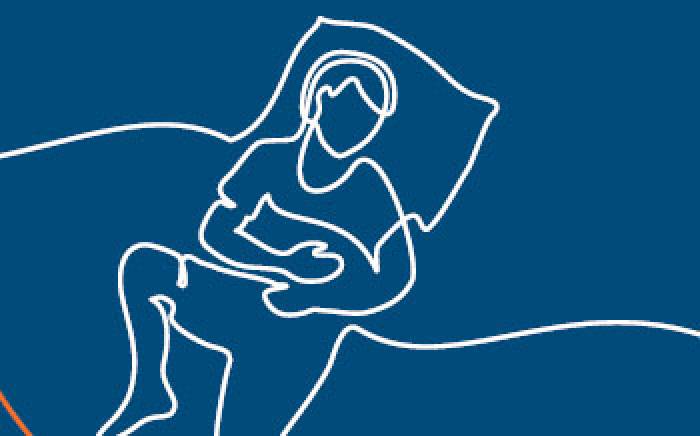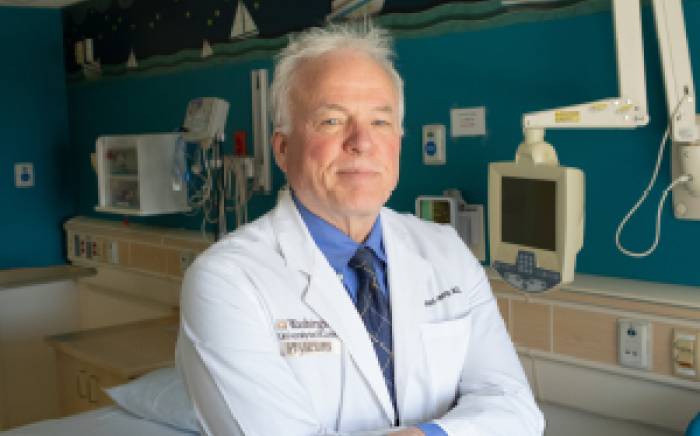Like adults, many kids today are under more stress than ever. And it’s showing up as increased prevalence of sleep disorders in children, says Merielle Hobson, a nurse practitioner in the Sleep Lab at St. Louis Children’s Hospital.
“Behavioral sleep issues are increasing due to anxiety, depression and stress in kids,” Hobson says. “At the same time, disorders such as sleep apnea are also increasing, especially as more and more kids are overweight or obese.”
A good night’s sleep is essential for your child’s health, mood, energy and overall well-being, so it’s important to recognize and address sleep problems—but how do you know if your child has one?
Here are just a few clues:
- daytime sleepiness when your child is past napping age
- morning headaches
- behavioral issues such as anger and irritability
“When a child regularly misbehaves in school, often the assumption is that the child has ADHD,” Hobson says. “But it’s important to look at the child as a whole. A sleep issue could be affecting behavior.”
Common Sleep Problems
Here are a few sleep problems and what to do about them.
- Sleepwalking
Being stressed or very tired can cause sleepwalking. “Your child is still getting sleep even while sleepwalking,” Hobson says. “It’s relatively harmless unless a child is destructive while sleepwalking.” She advises parents to gently lead their child back to bed without trying to wake him or her. Most children outgrow sleepwalking. - Night Terrors
As a parent, night terrors can be frightening to see. During a night terror, your child is frightened, agitated and may sit up or run, possibly screaming or talking wildly. However, your child won’t remember the episode in the morning. Sleep terrors are thought to be an inherited disorder and can be triggered by fatigue, lack of sleep or disruptions in a child’s usual sleep schedule.Hobson says it’s important to protect your child from injury and guide your child back to bed. Don’t try to wake your child, and not all children want to be touched or held during a night terror. If these episodes last longer than 30 minutes, occur more than twice a week or if your child also has several daytime fears, see your child’s physician.
- Insomnia
Just like adults, older children and teens may experience insomnia during which they have trouble falling asleep at night, wake up in the middle of the night or wake too early and can’t fall back asleep. It can be caused by sleep apnea, anxiety or depression, and then become a learned pattern of sleep. Hobson says maintaining a routine sleep schedule, avoiding caffeine, learning relaxation techniques and using the bed only for sleep can help allay insomnia.She recommends seeing your child’s primary care physician if you feel anxiety or depression is affecting your child’s sleep or if your child’s sleep problem lasts longer than two weeks.
More Serious Sleep Disorders
Hobson says sleep apnea and narcolepsy are two of the more serious sleep disorders and require medical attention.
- Obstructive Sleep Apnea Syndrome
Obstructive sleep apnea syndrome occurs when your child’s breathing repeatedly stops and starts during sleep. Your child may wake briefly when breathing stops, which leads to restless sleep. Loud snoring is a noticeable symptom of sleep apnea. Morning headaches, daytime sleepiness, behavior problems and new onset bedwetting can also be signs of sleep apnea.“Sleep apnea can be dangerous because oxygen levels dip, it affects a child’s learning abilities, and it puts the child at risk for heart disease if it’s not treated,” Hobson says.
About 2 percent of children who snore have sleep apnea. This snoring/sleep apnea connection can be caused by enlarged tonsils and/or adenoids, obesity or an enlarged tongue, jaw or facial abnormalities, muscular weakness or congenital problems, such as Down syndrome.
If you notice your child has loud snoring and other symptoms mentioned above, see your child’s primary care physician. Your doctor may refer you to a sleep specialist, who will record your child’s sleep overnight in a sleep lab to determine if your child has sleep apnea. Treatment varies depending on the cause of the sleep apnea.
- Narcolepsy
Narcolepsy is a lifelong neurological disorder that may begin in childhood or adolescence. The primary symptom is a strong urge to fall asleep during the daytime. This can occur during a quiet time or even a stimulating time such as eating or talking. The sleep may occur for just a few seconds so that it’s unnoticeable.Narcolepsy may also cause loss of muscle control (cataplexy) involving the whole body or just specific muscles such and the head or arm. Strong emotions such as laughter, anger, sadness or stress can trigger cataplexy. Other symptoms of narcolepsy include disturbed nighttime sleep, the inability to move or speak for a brief period when falling asleep or waking, and hallucinations just before or after sleeping.
“Narcolepsy can be dangerous, especially for teenagers who are driving,” Hobson says. “It’s important to diagnose and treat it, so see your child’s physician if your child has excessive daytime sleepiness or any narcolepsy symptoms.”
Uncovering Causes of Sleep Problems
To determine the cause of sleep problems, your child’s primary care physician may refer you to a sleep specialist. The St. Louis Children’s Hospital Sleep Center is staffed with trained sleep professionals with pediatric sleep experience who provide child-focused care while calming any fears your child may have.
Please call 800.678.KIDS (5437) to learn more about the sleep services at St. Louis Children’s Hospital.




